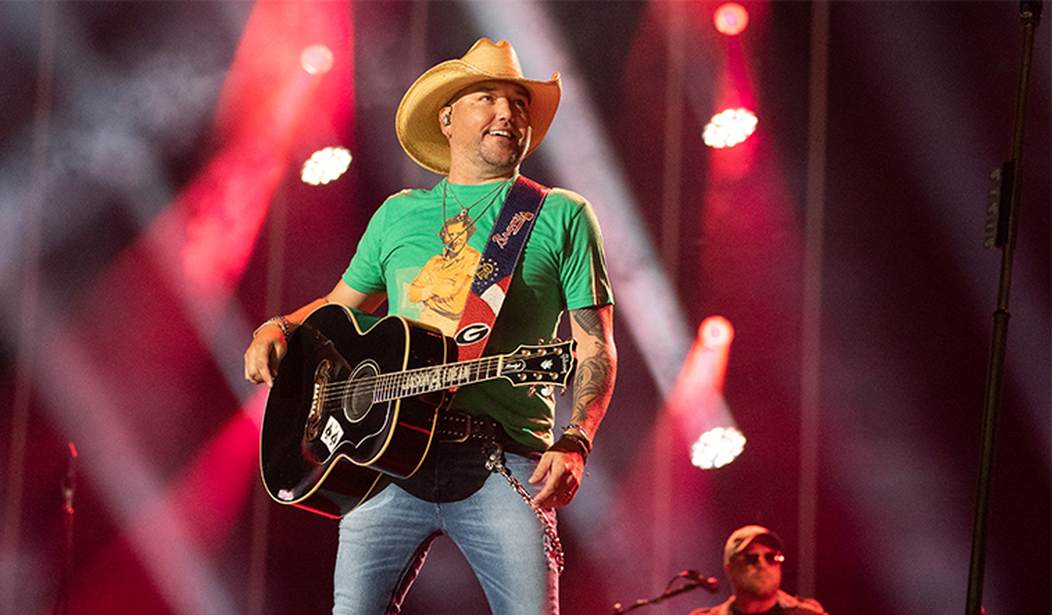Remember when country music was known for songs about pickup trucks, beer, and broken hearts? Well, now it appears some are trying to add racism to the mix. Over the past month, three popular country songs have garnered widespread acclaim, especially on social media.
But apparently, not everyone is a fan – especially on the left.
For starters, we have Oliver Anthony’s “Rich Men North of Richmond,” a populist anthem decrying the reality of elites making themselves fatter and wealthier at the expense of regular folks. The song was widely shared on social media and resonated with many who found common cause with its lyrics.
Next is Jason Aldean’s “Try That in a Small Town,” a response to the violence that rocked the nation after the murder of George Floyd. The video featured images of rioters destroying property, lighting fires, and confronting police officers. The piece was especially popular on the political right.
Lastly, there is Luke Combs’ cover of Tracy Chapman’s Grammy Award-winning “Fast Car,” which rapidly climbed the charts. His rendition of the song gained plaudits from many across the political spectrum, including from Chapman herself.
So what’s the problem with these twangy ditties? Well, apparently, they are racist.
Anthony’s song takes aim at people living on welfare which, in the minds of some on the left, was a shot at Black people. Aldean’s hit was supposedly intended to paint Black folks as violent for protesting against police brutality. Combs’ song was problematic because it inadvertently highlighted the reality that Black, queer women like Chapman have trouble making it in the country music industry.
In a piece for the Daily Beast, entertainment reporter Kyndall Cunningham, while also bringing up country star Morgan Wallen’s controversy over his use of the N-word, claimed the popularity of these songs is “harkening back to the genre’s historical (and persisting) throughline of anti-Blackness.” She used the fact that Wallen made a comeback after having used a racial slur as proof of her claims.
The reporter also argued that Aldean’s song “seemed to benefit from a wave of racist backlash due to its supposed ‘pro-lynching’ messaging.”
Lastly, Cunningham noted that Combs’ version of “Fast Car” somehow “raised questions about cultural appropriation and who’s allowed it to thrive in mainstream country,” which has “systematically excluded Black women and queer people.”
Cunningham is not the only one who has used these talking points to smear the country music industry, and these three artists, as racist.
To put it simply, country music is becoming a novel target for those who see racism lurking behind every chord. But, here’s a revolutionary idea: Perhaps maybe, just maybe, none of these songs have anything to do with anti-Black racism.
For starters, Anthony’s reference to people on welfare can apply to Americans of all ethnicities. Indeed, there are far more White people using government assistance than Blacks. Moreover, the overall message of the tune had nothing to do with welfare and was more of an indictment on the elite ruling class.
Aldean’s piece, contrary to Cunningham’s contention that it was “pro-lynching,” is about crime and violence occurring in big cities. Indeed, when you watch the video, the vast majority of the footage shows White people rioting and destroying property more than Black folks.
The points made about Combs’ rendition of “Fast Car” might be the closest to having some merit given the lack of Black country musicians enjoying the same level of popularity as Whites. But this seems to be changing as more Black artists are making waves in the industry. As the genre continues to evolve, it is not unreasonable to speculate that more people of all backgrounds will become popular as well.
Moreover, this story illustrates one of the most troubling aspects of the hard left: its penchant for exploiting Black people as political weapons against people they don’t like. Left-leaning personalities and politicians routinely try to score cheap political points on their political opposition by falsely labeling them as racist. Instead of making substantive arguments against the messages of the aforementioned songs, they simply resort to screaming “That’s racist.” It has been a cynical ploy that folks on the left have used for years.
What is unfortunate about this tactic is that it draws focus away from the actual impact of racism in American society – especially when it relates to government oppression. Instead of getting bent out of shape because of music, perhaps those who claim to oppose racism would be better served by focusing on areas in which it actually exists -- instead of just using it as a political cudgel against those who do not share their political beliefs.














